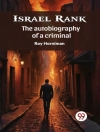In ‘The Thirty-Nine Steps & Other Adventure Stories, ‘ John Buchan masterfully weaves a tapestry of suspense, intrigue, and adventure, encapsulating the essence of early 20th-century thrillers. The novella, which serves as the centerpiece of this collection, follows the protagonist Richard Hannay as he becomes embroiled in espionage and conspiracy in pre-World War I Britain. Buchan’s vivid prose and sharp pacing establish an unrelenting tension that enraptures readers, while his use of detailed settings provides a rich literary context reflective of the period’s geopolitical anxieties. This volume includes six additional stories, each demonstrating Buchan’s deft narrative style and ability to draw readers into high-stakes scenarios where courage and wit are paramount. John Buchan, a prolific writer and political figure, found inspiration for his adventurous tales in his own life experiences, including his travels within the British Empire and his interest in politics and military affairs. His background in journalism and the influence of his own Scottish heritage enrich his storytelling, imbuing his characters with a blend of intellectual depth and bravado. These adventures reflect not only personal heroism but also the era’s cultural ideals, marking Buchan as a pivotal figure in the evolution of the spy genre. This anthology is a must-read for lovers of classic adventure literature and those who appreciate narratives imbued with historical context and psychological complexity. Readers seeking to explore the foundations of modern espionage thrillers will find Buchan’s work not only engaging but also a significant touchstone for understanding the genre’s trajectory. Immerse yourself in these action-packed tales and discover the timeless allure of adventure.
Over de auteur
John Buchan, Baron Tweedsmuir of Elsfield (1875-1940), was a Scottish novelist, historian, and politician, whose literary works marry the intrigue of adventure narratives with the depth of historical insight. With a prolific writing career, Buchan is perhaps best known for his classic espionage thriller, ‘The Thirty-Nine Steps’ (1915), which has been a touchstone in the adventure genre and spawned several film adaptations. His protagonist, Richard Hannay, embodies the quintessential hero and appears across Buchan’s works, epitomizing the blend of daring and intellectual acumen admired in his era. Buchan’s narrative style is marked by a meticulous attention to the particulars of place and a keen understanding of the socio-political tensions of his time. His corpus of writing extends beyond the Hannay series to include over 30 novels, a host of short stories, biographical studies, and historical texts, showcasing a versatile engagement with both fiction and fact. Before his death, Buchan held the position of Governor General of Canada, further evidencing the breadth of his accomplishments. His literary contributions endure in the canon of twentieth-century British literature, and his influences can still be traced in the thriller and adventure genres of today.












